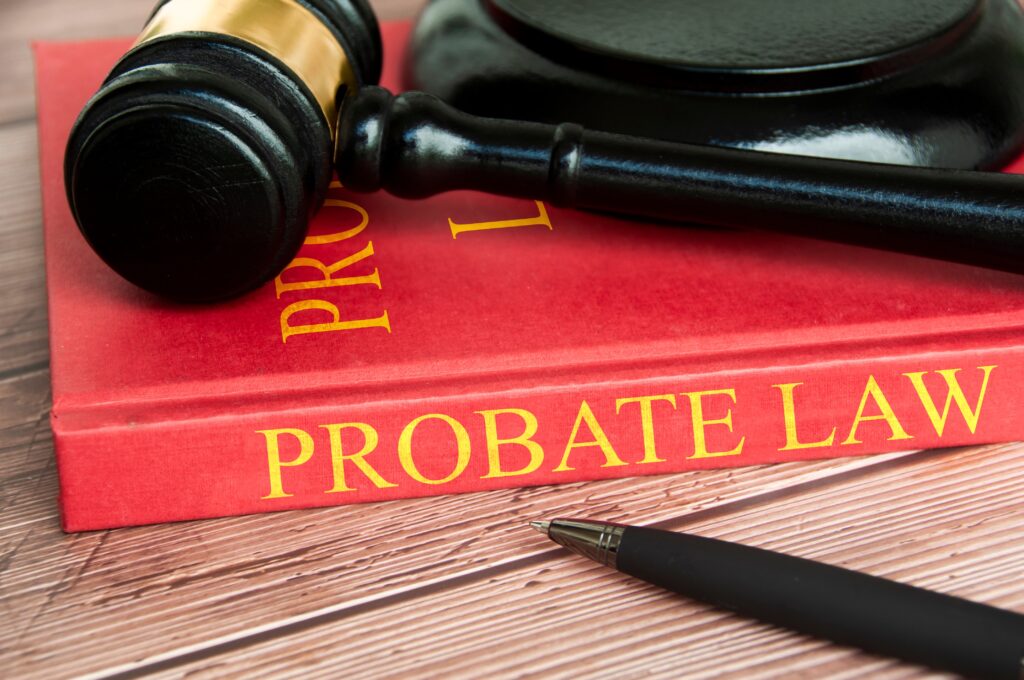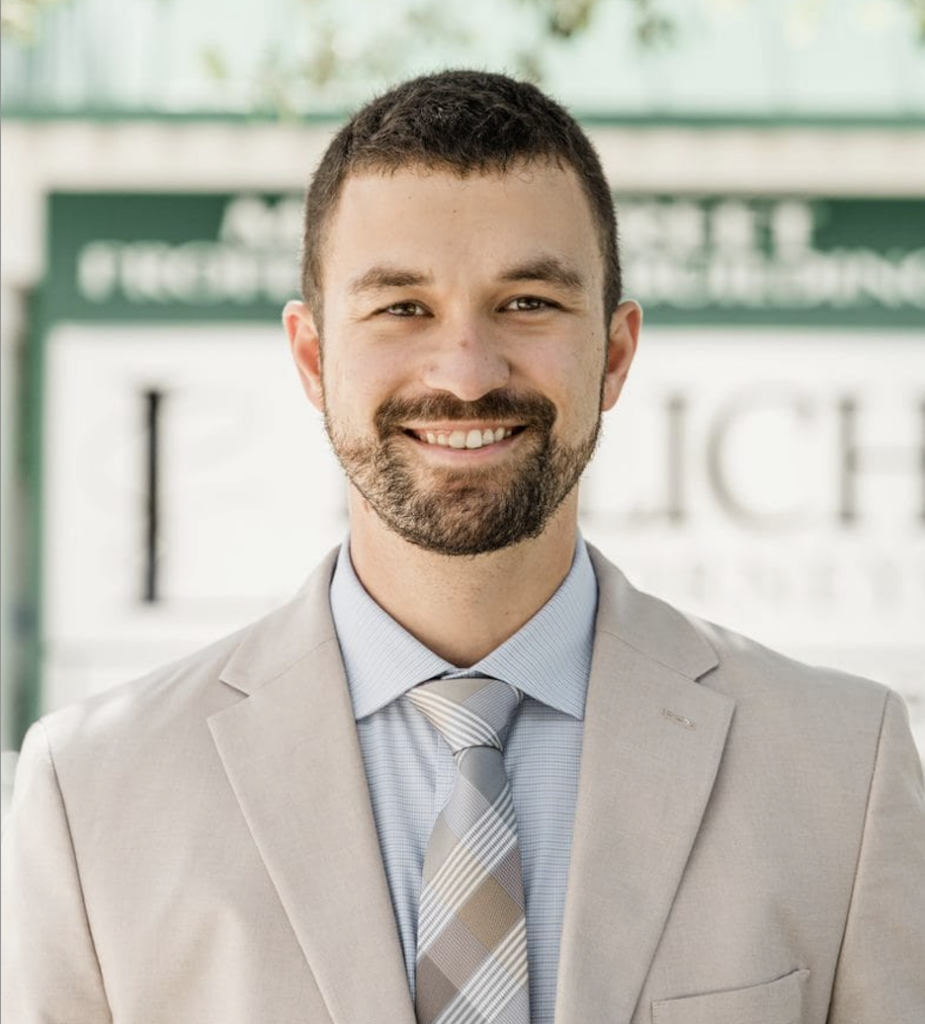Dealing with the loss of a loved one is a challenging and emotional time, and navigating the legal process of probate can add another layer of complexity. Probate lawyers play an important role in guiding individuals through the probate process, ensuring the deceased's assets are distributed according to their wishes and applicable laws. One common concern for those involved in probate proceedings is understanding the costs of hiring a probate lawyer in Sebastian. In this comprehensive guide, we will delve into various aspects of probate lawyer costs, helping you better understand what to expect and how to budget effectively.
Schedule A Consultation Today!
What is Probate?

Probate is a legal process designed to facilitate the orderly transfer of a deceased person's assets to their beneficiaries while ensuring that outstanding debts and tax obligations are appropriately addressed. While not every estate requires probate, certain circumstances necessitate the skills and knowledge of a probate lawyer. Understanding when to seek legal assistance is essential for navigating the probate process effectively.
What Does a Probate Lawyer Do?
A probate lawyer, also known as an estate or trust lawyer, specializes in the legal process of probate. Here are some key responsibilities and tasks that probate lawyers typically handle:
- Probate Process Guidance: Probate lawyers guide individuals through the often lengthy legal process of probate, which involves administering the estate of a deceased person.
- Will Validation: They assist in validating the deceased person's will, ensuring that it meets the legal requirements for authenticity and legality.
- Estate Administration: Probate lawyers oversee the administration of the deceased person's estate. This includes identifying, inventorying, and appraising assets.
- Debt and Tax Settlement: They work on settling outstanding debts and taxes owed by the deceased person's estate before distributing assets to beneficiaries.
- Court Filings: Probate lawyers prepare and file necessary legal documents with the probate court, ensuring compliance with applicable federal and state laws and regulations.
- Beneficiary Representation: They represent beneficiaries and heirs throughout the probate process, addressing their rights and ensuring a fair distribution of assets.
- Dispute Resolution: Probate lawyers handle disputes among beneficiaries or heirs, helping to resolve conflicts and, if necessary, representing clients in probate court.
- Legal Notifications: They ensure that potential creditors, heirs, and other interested parties receive proper notice during the probate process.
- Asset Distribution: Probate lawyers facilitate the distribution of assets according to the terms outlined in the deceased person's will or, in the absence of a will, according to state intestacy laws.
- Probate Court Representation: They may represent clients in probate court hearings, presenting evidence and arguments related to the administration of the estate.
- Trust Administration: In cases involving trusts, probate lawyers assist with the administration of trusts, ensuring compliance with trust terms and legal requirements.
- Legal Advice: Probate lawyers provide legal advice to executors, administrators, and beneficiaries, guiding them on the legal implications and requirements of the probate process.
- Estate Planning: Some probate lawyers also assist clients with estate planning, helping them create wills, trusts, and other legal documents to manage their assets and provide for the distribution of their estate upon death.
A probate lawyer is crucial in navigating the legal probate process, ensuring the orderly distribution of assets, and providing legal representation and guidance to individuals involved in the estate administration.
When is Hiring a Probate Lawyer Necessary?
The services of a probate lawyer can be especially beneficial and necessary in the following scenarios:
Significant Assets
Managing and appraising valuable assets is often complex if the deceased person possessed substantial assets, including real estate, investments, or business holdings. Many financial structures may necessitate professional legal and financial guidance to ensure accurate valuation and distribution.

Disputes Among Beneficiaries or Heirs
Sometimes, conflicts or disagreements arise among beneficiaries or heirs regarding the distribution of assets. As such, mediating disputes and resolving conflicts may require legal intervention. A probate lawyer can provide an impartial perspective. They can work towards fair and equitable resolutions.
Absence of a Valid Will
The probate process usually becomes more complex if the deceased person didn't leave a legally valid will. Legal assistance becomes crucial to navigate intestacy laws and determine the rightful beneficiaries.
Outstanding Debts and Taxes
Suppose the deceased person has left behind unpaid debts or tax obligations; managing and settling outstanding financial obligations require legal guidance. In that case, a probate lawyer can take over the process of satisfying creditors' claims and addressing tax liabilities.
A probate lawyer is often necessary when an estate exhibits complexities such as significant assets, disputes among beneficiaries, the absence of a valid will, or outstanding debts and taxes. Hiring a probate lawyer in these situations ensures that someone competently manages the legalities, reducing the potential for disputes and facilitating a smoother distribution of assets. Probate lawyers are well-versed in state laws surrounding probate. They can ensure that an estate gets distributed according to these laws.
How Do Probate Lawyers Charge for Their Services?
Probate lawyers employ various fee structures to charge for their services, providing flexibility for clients with different needs and preferences. Understanding these charging methods is crucial for individuals involved in the probate process.
Hourly Fees
One common and traditional method involves probate lawyers charging clients based on an hourly fee. With this arrangement, probate lawyers determine an hourly rate for their services. The total cost depends on the time spent on tasks related to the probate process. This type of fee arrangement is appropriate for cases with unpredictable durations or varying complexities. Probate clients should be aware of the potential for accumulated costs based on the time invested.
Flat Fees
Some probate lawyers offer flat fees, providing clients a predetermined cost for specific services or the entire probate process. Probate lawyers outline the scope of services covered by the flat fee. Flat fees are common for straightforward probate cases where tasks can be clearly defined. They offer predictability, allowing clients to budget without concerns about hourly accumulation. They are also Ideal for clients seeking transparency in costs and simplicity in billing.
Percentage of the Estate
In certain cases, probate lawyers charge a percentage of the estate's value as their fee. The lawyer's total fee is a percentage of the total estate value. Percentage-based fee structures may vary based on state laws and case complexities. This fee method is often employed when dealing with larger estates as it aligns the lawyer's compensation with the estate's overall value.

Understanding these fee structures empowers clients to make informed decisions based on their specific circumstances. Hourly fees offer flexibility but may result in variable costs, while flat fees provide predictability and clarity. Percentage-based fees link the attorney's compensation to the estate's value, making it suitable for cases with substantial assets. Clients should discuss these options with probate lawyers to choose a fee structure that aligns with their preferences and the nature of the probate case.
Factors Influencing Probate Lawyer Costs
Estate Size and Complexity
Larger estates with numerous assets and intricate financial structures often require more time and skill from probate lawyers. Complexities in managing various assets, business interests, or intricate tax implications may contribute to higher legal fees. Probate clients should anticipate increased costs for legal services when dealing with substantial estates. Clear communication with the lawyer about the estate's level of complexity is crucial for accurate cost estimates.
Location
Geographic location plays a significant role in determining probate lawyer costs. Lawyers practicing in urban areas or regions with a higher cost of living may charge higher fees compared to those in less populated or lower-cost areas. Probate clients should be aware of the regional variations in legal fees and factor this into their budgeting. Exploring legal representation options in different locations may offer cost-saving opportunities depending on the situation.
The Probate Lawyer's Experience and Reputation:
The experience and reputation of a probate lawyer will usually influence their fees. Highly experienced lawyers with a successful track record may command higher hourly rates or flat fees. Probate clients seeking top-tier legal representation should be ready for potentially higher costs. For many families needing a probate attorney, balancing experience with budget considerations is essential to finding suitable legal counsel.
Unforeseen Issues and Disputes:
Unforeseen issues, disputes among beneficiaries, or contested wills can prolong the probate process, leading to increased legal fees. Addressing disputes and managing unexpected challenges may require additional time and resources. As such, probate clients should recognize the potential for disputes and unexpected issues and discuss strategies for managing such situations with their lawyers. Planning for contingencies in the budget can help mitigate the financial impact of unforeseen challenges.
Understanding these factors empowers individuals seeking probate legal services to make informed decisions. By considering estate size, location, the lawyer's experience, and potential unforeseen issues, clients can develop realistic expectations regarding probate lawyer costs and effectively plan for the administration of the estate.
Strategies for Managing Probate Lawyer Costs
Clear Communication
Establishing clear communication with your probate lawyer is crucial to managing costs effectively. Open communication allows for a transparent discussion of the fee structure, potential costs, and any concerns you may have upfront, preventing surprises later in the process.
Clearly express your budget constraints from the initial consultation and inquire about any potential additional costs that may arise during the probate process. Regularly check in with your lawyer to stay updated on the progress and discuss any emerging issues that might impact costs.
Obtain Fee Agreements in Writing
Before engaging a probate lawyer's services, obtaining a comprehensive, written fee agreement is essential. A written agreement should outline the fee structure, anticipated costs, and the scope of services the lawyer will provide, ensuring clarity and avoiding misunderstandings.
Probate clients should request a detailed written fee agreement that clearly delineates hourly rates, flat fees, or any percentage-based charges. They should review the agreement thoroughly and seek clarification on any terms that are unclear or ambiguous.
Compare Quotes and Interview Multiple Lawyers:
Exploring multiple probate lawyers allows you to compare fees, experience, and approaches, helping you make an informed decision that aligns with your budget and needs. It's often best to interview several probate lawyers to gauge their experience and understand their strategies for handling probate cases.
When you receive quotes from each lawyer, consider not only the costs but also the value and services offered. Like with many other things in life, the cheapest lawyer may not be the best one to handle your probate case.
Be Organized and Prepared
Being organized and prepared can contribute to a more streamlined probate process, potentially reducing the time and costs associated with legal representation. Probate clients should gather all relevant documents, such as the deceased person's will, financial records, and property deeds, before meeting with a probate lawyer. They should provide the lawyer with a comprehensive overview of the estate's assets and liabilities, helping them to assess the complexity of the case more accurately.
Implementing these strategies empowers individuals to actively manage probate lawyer costs, fostering transparency and ensuring that legal representation aligns with both budgetary constraints and the effective administration of the estate.
Navigating the probate process and understanding the associated costs can be challenging. Still, with proper knowledge and planning, you can manage expenses effectively. Probate lawyer costs depend on various factors, including the size and complexity of the estate, the lawyer's experience, and the geographic location. By communicating openly with your probate lawyer, obtaining written fee agreements, and staying organized, you can navigate the probate process with confidence and ensure that your loved one's final wishes are honored while managing costs responsibly.

Do You Need a Probate Lawyer?
The probate process can be time-consuming, confusing, and overwhelming. The good news is that you don't have to go through this process alone. You can hire a skilled probate lawyer to handle the probate case on your behalf. They will keep you appraised of any progress or challenges that arise, only contacting you when necessary to obtain or relay information. When you first meet with a probate lawyer, find out about their options for fee structure to determine if their services will fit within your given budget.
